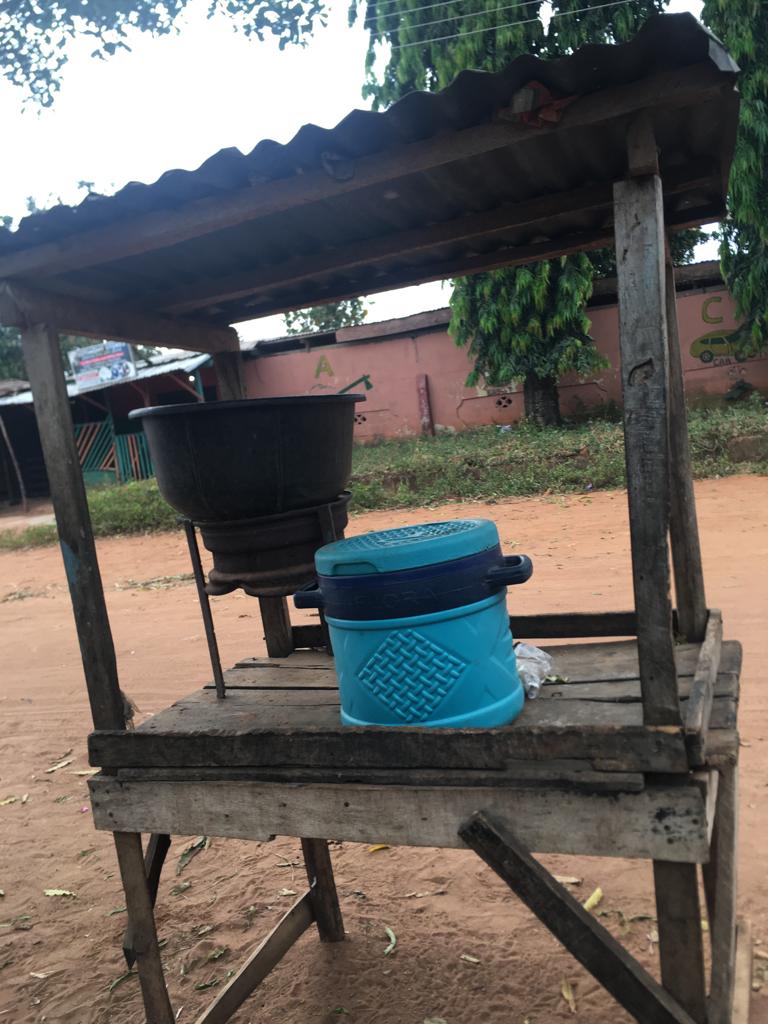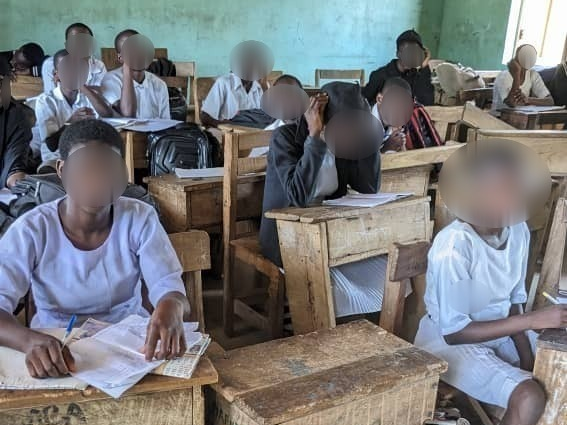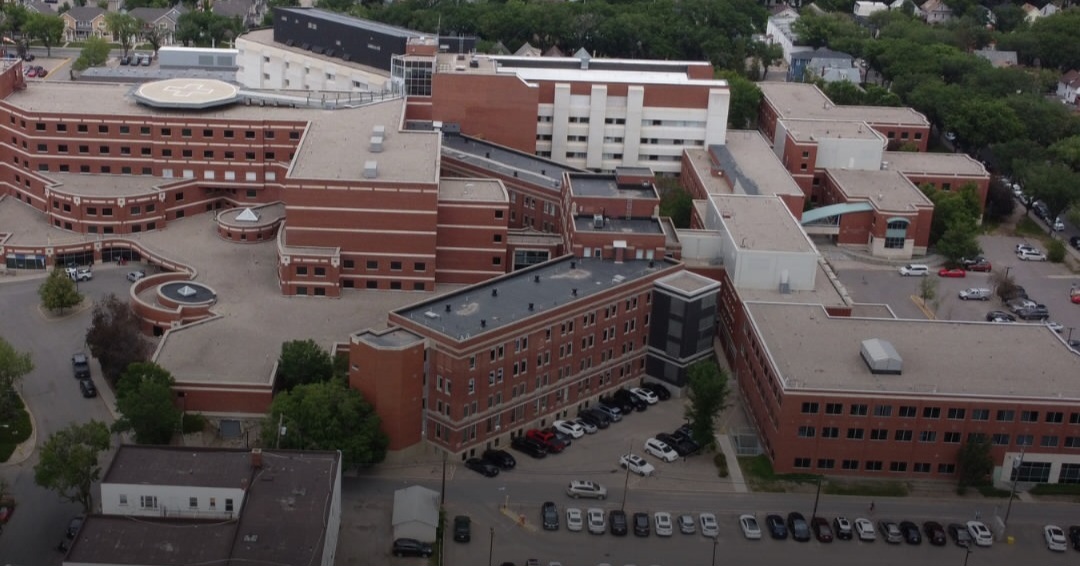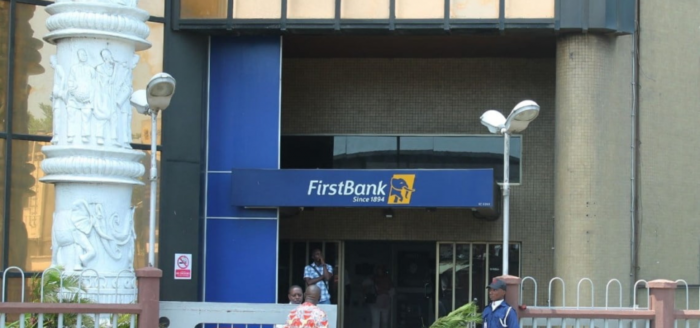Save for a few people like Aisha Dhikrullah, school activities resumed as usual for students and staff of the Okeho School of Science on Monday, November 20. While some students don’t just appreciate the idea of an assembly or early class, that’s not the case with Aishat.
In fact, testimonies from the school principal, Folorunsho Ojelade, and the counselor, Abiodun Adesotan, suggest that she is indeed punctual and enterprising. But unlike her peers, Aisha is in Iseyin, more than 32 kilometres from her school.
Aisha had dropped out of school in the third term of her second year as a senior secondary school student. Now, she works at the military barracks in Iseyin. At the young age of 17, Aisha assists a woman, Aduke, in selling food to soldiers, students and pedestrians who ply the roads nearby.

Aisha’s absence in school, as FIJ would discover, was for two reasons. Her parents can no longer afford to sponsor her tuition, especially the West African Certificate Examination. Also, per her father’s wishes, Aisha must marry Jamiu, a polygamist with two wives and kids, who is about 30 years older than her.

Aisha seemed rather composed and understanding of her situation when FIJ met her. However, this reporter would soon find out that her composure was a cover for resignation, thanks to a backstory of poverty, labour, and threats from her father. To understand Aisha’s journey, FIJ visited her mother.
‘HER FATHER WANTS TO MARRY HER OUT BECAUSE OF MONEY‘
On November 22, FIJ traced Aisha’s mother, Aminat Dhikrullah, to the border town of Saki, about 87 km from Iseyin, where her daughter lives and works. Aminat earns a living as a private school teacher at the International Muslim College in the community.
With a tone of plea for a way out, Aminat narrated the background of her daughter’s impending betrothal and how it climaxed into a quarrel between her and her husband.
“The problem is money,” she said. “You can see I am a teacher, but the money we collect in private schools is barely worth anything. They also owe us money. Sometimes, three months, sometimes we don’t collect money for holidays.
“Her father is also not very buoyant; he makes aso-ofi (woven dress indigenous to Yoruba people). There are not many people that use that type of dress. People who sell ready-made clothes have spoiled the business.
“So aside from basic feeding, clothing and regular family upkeep, it is always difficult, sometimes, almost impossible to pay the school fees of the child. I have had to plead with the school counselor a lot of times just to keep her in school with her mates.
“That’s part of the reason the child is with my elder sister working. Maybe she’ll be able to augment the money she gets from home to support her own education. She seems very interested in education.”
Aminat, from her work description, is educated. Like her, she wants Aisha to be educated, at least up to the first degree level. She graduated from the University of Ilorin in 2016. She doesn’t want her daughter to school late or shuffle matrimonial duties with academics like her. She had to see to breastfeeding and taking care of Aisha’s siblings as an undergraduate at the University of Ilorin.
“Her father began to consider betrothing her to a husband because of family struggles and, most especially, the consistent difficulty in keeping her in school,” Aminat told FIJ.
“Initially, her father suggested that she would go to her husband’s house after she finished her WAEC. When the girl refused, he threatened never to pay her school fees again if she would not listen to him. I also told him that my daughter was too young.
“I had told the school counselor that I’d try anything possible to sponsor her, even if it was her WAEC. I knew I’d be unable to sponsor her university education, but at any time God is willing, she could continue, but not by marrying an old man.
“This issue has caused disagreement between me and my husband. I finished my own NCE in 2003. Before I went to complete my degree at the University of Ilorin, I had already birthed Aisha’s sisters. And it was a real struggle at home throughout the programme.”
“My husband was complaining that he could not be cooking and taking care of children while I was away. Sometimes, I took Aisha along with me to the university to assist me in carrying her kid sisters. I don’t want her to have that experience.”
Aminat made another interesting revelation while speaking to FIJ: Aisha’s potential suitor is about her age. Alfa Jamiu, the suitor, is fairly well-to-do with a family of two wives and about six children, according to Aminat.
“I have been telling her father that she is not ready and will not marry. But it seems he and the Alfa have already agreed. I know some occasions when the man offered to help with the claim that he was doing it for his wife.”
“He has offered to help on many occasions like that because of ‘his wife’. He only came to manage a vehicle store in our area. That was how we originally met him. Aisha’s father must have thought that he could marry my daughter because of the money he seemed to have.”
“I have been trying to get help from the school counselor on this matter. I sense resignation in my daughter already, and I would appreciate any form of attempt to help get her out of the situation.”
READ ALSO: SPECIAL REPORT: Inside Oyo Communities Where Girls Abandon Schools to Milk Cows
When this reporter pointed out that marriage was illegal for Aisha’s age in Nigeria, Aminat made another interesting comment.
“Her father does not believe that. In Islam, it is better for a child to marry than stay at home and let men touch her anyhow. If she is in her husband’s house, promiscuity is not likely. But even at that, I think she is still way too young. We have disagreed over this matter a lot,” she said.
Meanwhile, all of FIJ’s attempts at reaching Aisha’s father and her potential suitor proved futile. Aminat did not want this. She feared that there might be blowback and she might have to deal with it at home when the reporter was gone.
AISHA’S DREAMS
Ojelade, the principal at the Okeho School of Science, had earlier told FIJ that Aisha was one of the school’s most promising students. Not the school counselor, her aunt, her cousin, or any of the two other teachers who spoke to FIJ about Aisha shared any dissenting opinion.
Aisha’s responses in her interview with FIJ portrayed a brilliant young lady. She narrated the story of her secondary school life, up until she dropped out, and her father’s proposal for her to get married.
“I plan to go to UNILORIN after my mother, and I want to be a pharmacist. My mother sells drugs, and I think I want to learn how to do that, but in school,” Aisha had told FIJ on Tuesday, November 21.
“I stopped school because we no longer have money.
“We pay N12,000 a session in total. Before I stopped going to school in the third term of SS2, I usually paid my school fees late. My father makes aso-ofi, and I assume he is not always buoyant enough.
Most of the time, we do not get to pay school fees until they send us out of school.

“When I left Community Army Barracks School in Saki, it was for two things. Because of the money, first. My parents also thought it wise that I leave the house for the School of Science. Someone might help me.
“The most difficult period for me would be when I first arrived in Okeho. I was living with a woman, my dad’s friend. I remember that I had to leave early to school by six in the morning and return by six in the evening. We only cooked once, so by the time I returned, I was usually very tired and hungry. I most times had to keep the money in my hand for more important things.

“I left the School of Science because of money. My mother and I then concluded that I’d work in Iseyin to see if I could earn some money. I earn about N5000 a month and this is my second month of working.
“I also bought most of the textbooks I own myself. Most recently, I worked with my father in his cloth workshop and I remember when someone gave us a generous bonus. I ended up earning N5000. An elder sibling of mine also collected the same amount and she gave it to me. I used it to buy the textbooks I used in class that term.”
When FIJ probed Aisha about the proposed marriage, she was initially reluctant. Her expression soured and her tone dropped.
“Well, my father has been telling me about the man, since there is no money for me to further my education. My father had observed that since he gave us money whenever we worked with him, he is a generous and well-to-do person. He said the marriage would benefit me.”
“My mother disagreed. The man is very old and I had first met him when I worked for him to offload the engine of motorcycles in his warehouse. The man has always been particularly generous to me. I don’t know what he and my father had discussed.”
POVERTY IS A MAJOR DRIVER FOR CHILD MARRIAGES AND AN INCREASED NUMBER OF OUT-OF-SCHOOL GIRLS
Sections 23 and 24 of the Child Rights Law of Oyo State explicitly forbid child marriage and betrothal. According to the law, a child is defined as an individual under 18 years, and as stated in the legislation, such a child “is incapable of contracting a valid marriage”.
Despite the legislation, three out of every 100 girls in Oyo State were estimated to have married before they were 15, according to the 2021 United Nations Children’s Fund (UNICEF) Multiple Indicator Clusters Survey (MICS).
In the same year, the survey estimated that about 13 out of every 100 girls in the state married before they were 18 years old. However, child marriage is never isolated from poverty and illiteracy. About 18.7 percent of the girls between the ages of six and 15 are poor and out of school in the state, according to the National Bureau of Statistics in 2022.

In 2019, the United Nations collaborated with the Girls Not Bride organisation to produce a report on how to advance evidence-based strategies to end child marriage. Their report concluded that poverty was a major driver in child marriages and illiteracy for female children.
“Child marriage is most common within poor and rural communities. Further, as a result of intersecting vulnerabilities, girls living in the poorest and rural communities are the most affected by child marriage and its consequences, and are also the least likely to be reached by interventions,” the report read in part.
These conclusions are evident in Okeho, a moderately rural community in the state. The 2022 Nigerian Poverty Multi-dimensional Index (MPI), for instance, puts the number of poor people in Oyo State alone at 3.79 million.
If the United Nations’s 8.4 million population is anything to go by, it would mean that 45 percent – almost half the state’s population – is considered poor. The senatorial district Okeho belongs to, Oyo North, alone has 1.4 million poor households, according to the MPI.


CHILD BETROTHAL USED TO BE A THING, NOT ANYMORE
To understand the general attitude towards child marriage in the vicinity, FIJ took to different areas of Okeho to ask ordinary residents about it.
Quadri, a driver who plies the Okeho-Iseyin-Ilero route, expressed visceral disgust at the idea of child marriage. He believes that the world has run out of excuses to send girls to a man’s house early.
According to him, those decisions are based purely on greed.
“I don’t know anybody that still marries off their girls. I know of girls that get pregnant before they can finish school or after they finish secondary school,” he said.
“But parents willingly giving off their child in marriage? The last time I heard that was when I was a child. If a child is impregnated outside wedlock, it’s a different case. Anyone who does that now has to be greedy.”
Khadijat, a hotel assistant at the Kajola end of Okeho town, shares an almost similar opinion with Quadri. She gave the alternatives she would explore if she could no longer afford her child’s school fees.
She emphatically described how immaturity might affect small girls in matrimonial homes and recommended that even young ladies don’t marry unequipped.
“I know some people still arrange marriages for their girls, but the ones I know are mature girls that finished school. If I could no longer afford my child’s school fees, I’d rather she learned a trade or assisted me at work,” she said.
“Most times, the girls are not ready for family. In other places, their mates are still reliant on their mothers for bra and pant money. That is why marriages like that are usually too difficult for the girls to handle. They’d abandon all of their own plans for the family. I don’t think it’s a good idea.”
The principal of Okeho School of Science said that he thought arranged marriages had died out since the 1970s. He explained that the idea sounded so like a made-up tale to him when he first heard about it.
While citing it was no excuse for such an act, he alluded to poverty as an overarching issue that might have driven the decision, just as Aisha and her mother had explained.
Ojelade also told FIJ that more girls, aside from Aisha, had been forced to give up their academics partly because they could no longer afford it.
“Child marriage is not a common thing in this area. It has stopped like that around 45-50 years ago. The last I remembered was that around ’75. I am almost sure. This situation is an outlier,” he said.
“When girls were sent to school in large numbers at the time, they would deliberately pick a trade to learn when they could not afford the fees. As of then, girls were no longer leaving out the chance for any parents to marry them off.”
“It’s a sad reality peculiar to this girl, and I really hope someone stands up for her to help her. The school has been trying for her, the counselor especially, but there is only so much we can do.
“The girl leads her peers in some of the subjects in class. And let me tell you, the situation is not delicate at all. I think the father is just greedy. I did not hear of such a situation in a very long time.
“I know poverty is a contributory factor, but it’s not enough reason. I know other children that dropped out because of poverty and sometimes hunger, but they were not sent off to marry just like that.”
MORE GIRLS MAY GIVE UP SCHOOLING BECAUSE OF POVERTY
If Aisha is between a rock and a hard place, then Zainab Usman and Abibat Atanda are caught somewhere between a pebble and a firm surface.
Unlike Aisha, these two girls are not being forced into an early marriage of convenience. However, they have one thing in common; the three girls may be forced to forfeit their education due to poverty.
Zainab, for instance, had a very difficult final year at the Okeho High School, according to Adesotan, the school counselor.
She had lost her father in 2022. As a result, she had to work away from home in Lagand, Okeho, her hometown, to pay her tuition at the Okeho School of Science.
Zainab herself would later narrate her experience in secondary school to FIJ.
“My toughest moment must be last year. When we had my father, paying school fees wasn’t that easy but we still managed. Before he died last year, my mum had used all of the money from her business to treat him.
“Losing him was hard on the family, especially my mother. The death not only affected our spending in the family, but it also affected my concentration in class and my mother’s well-being.
“I had to double my effort at work. My school fees and the cost of my final external examination, I would not have been able to afford if not for my siblings. They gave me the money to complete it.”
While Zainab continues her work as an auxiliary nurse trainee, she is hopeful for a miracle, without which she may not be able to purchase a Unified Tertiary Matriculation Examination (UTME) form or study nursing at Ladoke Akintola University.
READ ALSO: SPECIAL REPORT: Akwa Ibom Schools Losing Girls to Teen Pregnancy at an Alarming Rate
Abibat, like Zainab, had also experienced the pain of losing a parent and it worsened her chances of finishing school. FIJ learned that she, unlike Zainab and Abibat, schooled at the Ipapo Community Grammar School, some minutes away from Okeho.
She had dropped out because she had to choose between working, income feeding and going to school. While Abibat was not very keen on detailing her life, she expressed her desire to see her education to the end if anyone would sponsor the rest of it.
Zainab and Aisha had particularly recognised the help of the counselor and the principal officers at the Okeho School of Science.
However, Adesotan told FIJ that it was never enough.
“There is only so much teachers and principal officers can do. I cannot pay for more than a child even if I want to and that’s when I am regularly paid. Secondary schools in rural communities like ours need more intervention and support to keep these children in school,” he said.
Subscribe
Be the first to receive special investigative reports and features in your inbox.















